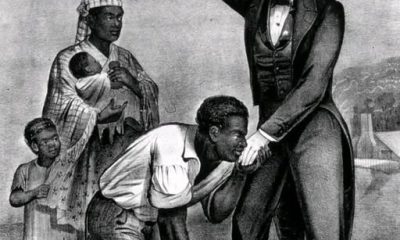By Ediale Kingsley
For a bit of fun National Daily presents LawPàdí’s interpretation of some of the strangest laws you probably never know existed in the Nigerian Law statute books and case law. Believe it or not these weird and strange laws are still applicable in modern day Nigeria.
— Under Nigerian Law, a wife of a Christian marriage is not criminally responsible for an act which she is actually compelled by her husband to do in his presence, except if it’s an offence punishable with death, or one in which grievous harm to the person of another, or an intention to cause such harm, is an element – Criminal Code Act
— It is illegal to paint a private car in the colour known colloquially as ‘army green’
– Army Colour (Prohibition of Use) Act
in Nigeria, advertising a reward for the return of stolen or lost property and stating that no question will be asked, or that the person producing such property will not be seized or molested is illegal – Criminal Code Act
— The position of the law in Nigeria is that an individual can go to court to seek an order preventing someone from going about claiming that he/she and that individual are married…it’s called ‘jactitation of marriage’ – Matrimonial Causes Act
— Under Nigerian Law, whenever a male person who in the opinion of the court has not attained 17 years of age has been found guilty of any offence the court may, in its discretion, order him to be caned in addition to or in substitution for any other punishments to which he is liable. – Criminal Code Act
— Another interesting and strange situation under Nigerian Law, is the fact that an individual can sue his/her former partner for breach of promise to marry – Ezeanah v. Atta (2004) 7 NWLR (Pt. 873)
— Any person who by his statements or actions represents himself to be a witch or to have the power of witchcraft; is guilty of misdemeanour and is liable to imprisonment for two years – Criminal Code Act
— A person is not deemed to have killed another, if the death of that other person does not take place within a year and a day of the cause of death. – Criminal Code Act

 Football6 days ago
Football6 days ago
 News5 days ago
News5 days ago
 Business1 week ago
Business1 week ago
 Football1 week ago
Football1 week ago
 Business1 week ago
Business1 week ago
 Latest6 days ago
Latest6 days ago
 Comments and Issues6 days ago
Comments and Issues6 days ago
 Comments and Issues6 days ago
Comments and Issues6 days ago

